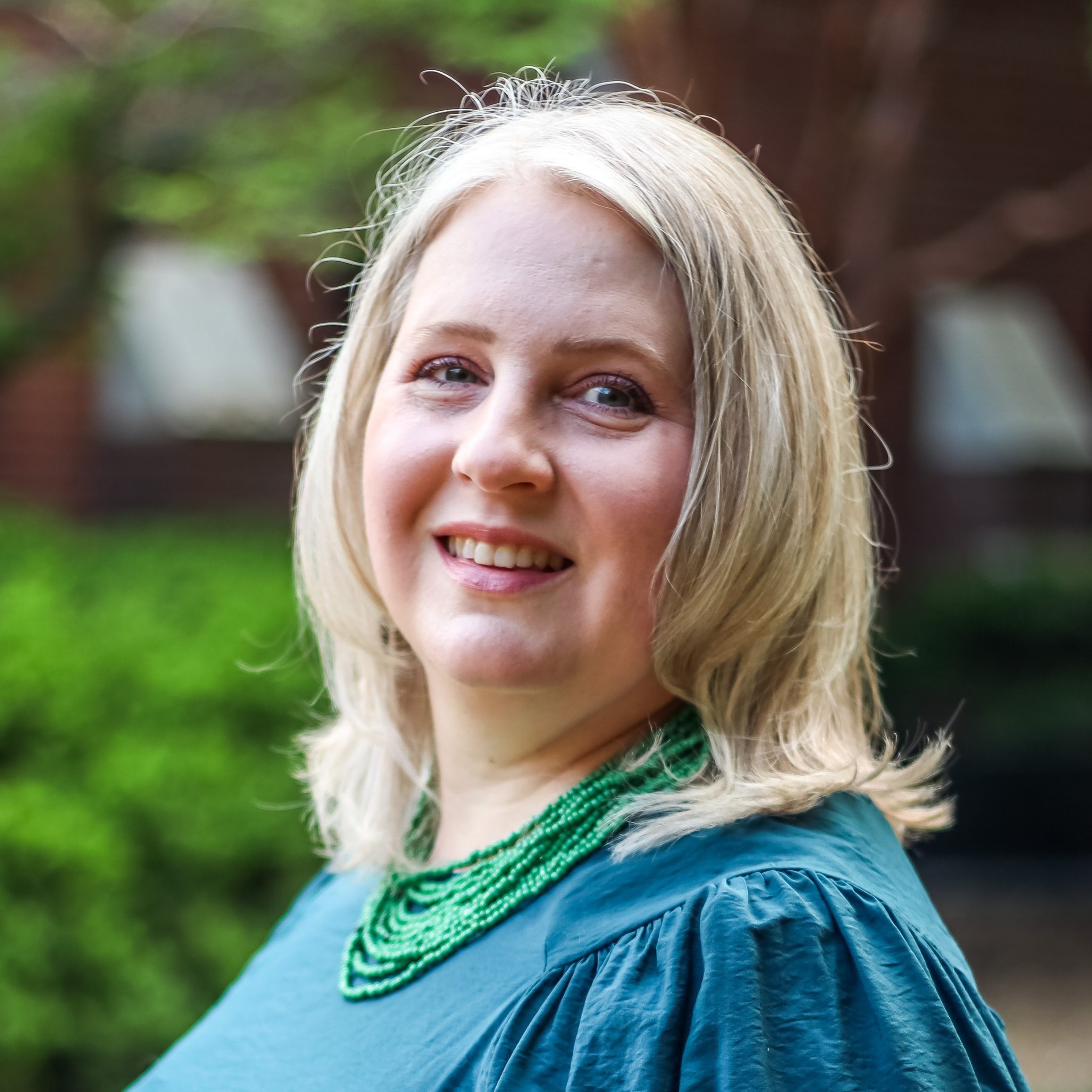Bio
My research combines oral history, ethnography, and archival research to explore the mechanisms Indigenous people use to assert their sovereign relationship with their historical landscape despite the ruptures created by removal, reservations, assimilation, and development. As an Ethnohistorian, I research the employment of cultural and political expressions of social cohesion by Native communities, particularly in response to the pressures of Euro-American encroachment on Native landscapes. In my research, kinship—networks that connect both human and non-human entities to the landscape—emerges as one important mechanism that Native people historically used to assert both cultural identity and political sovereignty in many spheres, including negotiation of political relationships with the United States, resistance to removal from homelands, establishment of reservation boundaries, maintenance of cultural landscapes, and preservation of food systems. Ultimately, recognizing the value placed on social relationships by Native people historically speaks to the broader conversation that both scholars and Native peoples are having today about maintaining political and cultural autonomy in ways that are different from those of the nation-state. My most recent research on food sovereignty reveals how these social relationships not only effect how people work to access specific landscapes, but how they relate to the wider ecosystems that share these landscapes. I am currently exploring the ways that Indigenous corn agriculture, seed breeding, and broader food systems have acted as important mechanisms that Native people have used to assert both cultural identity and political autonomy.
Area of expertise
Topics of interest
Grants and awards
- 2023 Collaborative Research: Towards resilient water infrastructure in Alaska Native communities through knowledge co-production, NNA Research NSF, 1.2 million.
- 2022 Building Adaptive Capacity to Climate Change in Alaska Native Communities by Reducing Health Risks from Water Infrastructure, Quality, and Security, EPA STAR, 1.35 million.
- 2020 National Endowment for the Humanities Fellowship, $60,000
- 2019 Sustainable Agriculture Research and Education Grant, North Central Region, USDA, $200,000
- 2019 Critical Agricultural Research and Extension Grant, Agriculture and Food Research Initiative, National Institute of Food and Agriculture, USDA, $300,000
- 2019 State Historical Society of Iowa Research Grant, Iowa Department of Cultural Affairs, $1,000.
- 2015 The Phillips Fund Grant for Native American Research, The American Philosophical Society, $3,400.
- 2014 Short Term Research Publication Grant, American Association of University Women, $6,000.
Recent / major publications
Books
- 2024 National Parks, Native Sovereignty: Experiments in Collaboration. (With Mathew Hill and Brooke Neely). Norman: University of Oklahoma Press. (Public Lands History series).
- 2017 Webs of Kinship: Family in Northern Cheyenne Nationhood. Norman, OK: University of Oklahoma Press. (New Directions in Native American Studies series) (xiv-382pp).
Journal articles
- In Progress Reclaiming Noaha-vose (Bear Butte): Cheyenne Resistance to Settler Colonialism in a Sacred Place, Ethnohistory.
- 2024 The Seeds are Coming Home: A Rising Movement for Indigenous Seed Rematriation (With Emma Herrighty) Agriculture and Human Values.
- 2022 Reuniting the Three Sisters: Collaborative Science With Native Growers to Improve Soil and Community Health (With Marshall McDaniel, Ajay Nair, Donna Winham, Emma Herrighty, Valeria Camo Cancho, and Derrick Kapayou). Agriculture and Human Values.
- 2018 A Cheyenne Odyssey: Representing Removal in a Video Game. Museum Anthropology 12(2).
- 2018 Introduction to Digital Representation of Indigenous Peoples through Sharing, Collaboration, and Negotiation (With Medeia Csoba DeHass). Museum Anthropology 12(2).
- 2017 Seeds As Ancestors, Seeds As Archives: Seed Sovereignty and the Politics of Repatriation. American Indian Culture and Research Journal 41(3):1-20.
- 2016 The Dispute over Wild Rice: An Investigation of Treaty Agreements and Ojibwe Food Sovereignty (With Amanda Raster). Agriculture and Human Values 34(2): 267-281.
- 2013 “General Miles Put Us Here:” Northern Cheyenne Alliance Making As a Safeguard of Sovereign Territorial Rights. American Indian Quarterly 37(4): 340-369.
- 2005 A Voice in the Era of Silents: An American Indian Aesthetic in Early Silent Film. Native Studies Review 16(2): 39-76.*
Book chapters
- 2024 Reciprocal Respect: Conducting Ethnographic Research for the National Park Service. In National Parks, Native Sovereignty: Experiments in Collaboration. Christina Gish Hill, Mathew Hill, and Brooke Neely, eds. Norman: University of Oklahoma Press.
- 2024 Introduction. In National Parks, Native Sovereignty: Experiments in Collaboration. Christina Gish Hill, Mathew Hill, and Brooke Neely, eds. Norman: University of Oklahoma Press.
- 2024 Interview with Lance Foster, Ioway THPO. In National Parks, Native Sovereignty: Experiments in Collaboration. Christina Gish Hill, Mathew Hill, and Brooke Neely, eds. Norman: University of Oklahoma Press.
- 2024 Epilogue. In National Parks, Native Sovereignty: Experiments in Collaboration. Christina Gish Hill, Mathew Hill, and Brooke Neely, eds. Norman: University of Oklahoma Press.
- 2020 The Opportunity for Repair Work at Mount Rushmore: Cheyenne and Arapaho Perspectives. In Reinterpreting Mount Rushmore’s Heritage: Native Engagements With A National Memorial In The Context Of The Black Hills. Matthew Hill, ed. National Park Service.
- 2016 Pre-Colonial Foodways. In The Routledge History of American Foodways. Jennifer Jensen Wallach, Lindsey R. Swindall, and Michael D. Wise, eds. Pp 9-22. London: Routledge Press.
- 2013 Kinship as a Strategy for Maintaining Indigenous Sovereignty. In Tribal Worlds. Brian Hosmer and Larry Nesper, eds. Pp 65-110. Buffalo: SUNY Press.
Other publications
- Forthcoming Herrighty, E; Kapayou, D; Can-Camancho, V; Nair, A; McDaniel, M; & Winham, D, “Reuniting the Three Sisters”, Iowa State University Research and Demonstration Farms Progress Reports 2022
- 2022 Herrighty, E; Kapayou, D; Can-Camancho, V; Nair, A; McDaniel, M; & Winham, D, “Reuniting the Three Sisters: Native American Intercropping, Seed Saving, and Plant Health”, Iowa State University Research and Demonstration Farms Progress Reports 2021(1), 9-11.
- 2021 Herrighty E. & Nair A. & Gish Hill C., (2021) “Reuniting the Three Sisters: Native American Intercropping and Soil Health”, Iowa State University Research and Demonstration Farms Progress Reports 0(4).
- 2020 Returning the “Three Sisters”—Corn, Beans, and Squash—to Native American Farms Nourishes People, Land, and Cultures. The Conversation, Nov. 20, 2020.
- 2020 Can Traditional Ecological Knowledge Be Integrated Into Modern Cropping Systems to Enhance Soil and Water Conservation (with Derrick Kapayou and Marshall McDaniel). Getting Into Soil and Water, 2020 edition.

